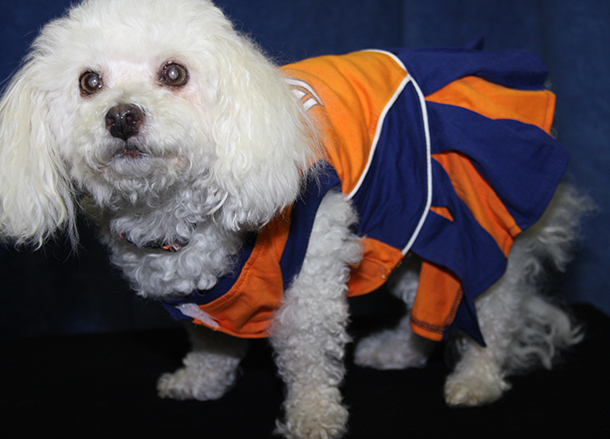Beware Chocolate Toxicity during Halloween
Are you still clinging to the idea of it being late summer or early fall? Are you still wearing shorts outside because it’s sunny, though it’s 51 degrees, the leaves are falling down from the color-shifting trees while the kids have gone back to school, and the Bears are still trying to score any points? Well, great. Your delusions are sweet, but there are some basic, easily graspable concepts of pet ownership that need to be observed, even if you won’t admit that we are about to free-fall into the cold holiday months.
Dogs should not eat chocolate. Or treats. Or cake. Or really any holiday-themed treat. EVER. As you load up on Reese’s Peanut Butter Cups and Snickers for Halloween, and you start baking Chocolate Bomb Whipped Cream Cupcakes for all your Halloween parties, you need to make sure that you keep everything [EVERYTHING] out of dog-harm’s way. Tabletops are not safe, the bottom of the stairs is not safe, the backseat of the car is not safe, your small toddler’s barely functional fist filled with candy bars is not safe. Every year we emphasize this, and ever year we still get tons of chocolate toxicity cases that come in while the owners inadvertently allow their animals to digest billions of chocolate calories.
Many clients seem to know friends who give their dogs chocolate and nothing happens, and these are wonderful stories. But dogs can suffer fatal cardiovascular and neurological effects from ingestion of the toxin theobromine in chocolate, as well as the caffeine. The darker the chocolate, generally the worse it is for the dog, but small dogs can be affected by a few bite-size candies. It takes very little cocoa powder or baking chocolate to cause severe and immediate damage. It also sometimes takes up to 12 hours to have a full effect.
If your dogs ingest chocolate, call or bring them in immediately. Even if they do not ingest enough to cause fatalities, they can get sick, start to vomit, get bad diarrhea, and become dehydrated. You may need to bring them in later for supportive care that could have been avoided with a quicker response. Secondarily, dogs can become very sensitive to treats filled with fatty substances like cookie dough, cakes, candy, etc. We can see severe gastrointestinal signs occur quickly, as well as life-threatening, painful, and costly side effects such as pancreatitis.
So let’s just say that after you dress up your 5-year-old into her Queen Elsa costume, you go back downstairs and see that the previously full tray of Snickers is now not so full. You’re not sure if your dog ate them, and your daughter is now screaming to go outside and go trick or treating. It’s really annoying, I know, but your dog should come into the clinic so we can assess, possibly induce vomiting, and start treatment. There just really isn’t an alternative. Queen Elsa will thank you later.
Happy Halloween! Hopefully you will not have any unneeded canine scares in addition to all the witches, ghosts, and demons out and about in the city.
Dr. Brett Grossman
Dr. Drew Sullivan
Medical District Veterinary Clinic at Illinois

